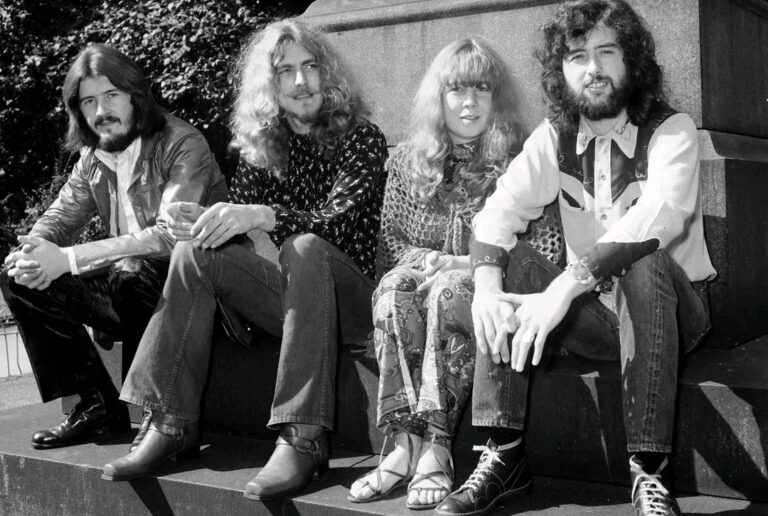BREAKING: On this date in 1978, UK folk singer Sandy Denny succumbed to a fall down a staircase while on holiday with her parents in Cornwall, England a month earlier. Her death was ruled to be the result of a traumatic mid-brain hemorrhage after she collapsed at a friend’s home. She was a member of Fairport Convention and a solo artist. Her 1967 song ‘Who Knows Where the Time Goes’, was covered by Judy……Read more
Certainly! Here’s an 800-word news-style article marking the anniversary of Sandy Denny’s death and honoring her legacy:
BREAKING: Remembering Sandy Denny — 47 Years After the Voice of British Folk Fell Silent
April 21, 2025 – London, UK — On this day in 1978, the world lost one of its most haunting and beloved voices. Sandy Denny, the pioneering British folk singer known for her work with Fairport Convention and as a solo artist, died tragically at the age of 31. Her death followed a fall down a staircase while on holiday in Cornwall, England, with her parents a month prior. She later collapsed at a friend’s home in London and never recovered. The cause was determined to be a traumatic mid-brain hemorrhage.
Denny’s passing cut short a brilliant and emotionally profound career, but her voice and songwriting continue to resonate deeply nearly five decades later. She remains one of the most influential artists in folk and rock history—a performer whose music transcended genre, time, and trend.
Born Alexandra Elene MacLean Denny in London in 1947, Sandy showed an early interest in music and studied classical piano before turning to folk singing in her late teens. In the mid-1960s, she began performing in London’s vibrant folk club scene, quickly gaining attention for her rich, expressive voice and the quiet intensity of her performances.
Her big break came in 1968, when she joined the British folk-rock band Fairport Convention, replacing singer Judy Dyble. With Denny at the helm, the band shifted direction—from covering American folk to diving deep into traditional British music, fused with rock energy. The result was a string of critically acclaimed albums, most notably “Liege & Lief” (1969), often cited as the definitive British folk-rock record.
It was Denny’s voice—warm, melancholic, and unmistakably human—that became the centerpiece of Fairport’s sound. Songs like “Matty Groves,” “Tam Lin,” and “Crazy Man Michael” were brought to life through her ability to breathe emotion into every line.
However, it was a song she wrote before joining the band that would become her most enduring contribution to music.
“Who Knows Where the Time Goes,” written in 1967, was first recorded by American folk legend Judy Collins, whose version brought the song international attention. Collins would later say she was “staggered” by the depth of emotion in the writing, calling Denny “one of the finest singer-songwriters of her time.” The song has since become a folk standard, covered by dozens of artists from Nina Simone to Eva Cassidy.
The lyrics feel especially poignant today:
“Across the evening sky, all the birds are leaving. But how can they know it’s time for them to go?”
After leaving Fairport Convention in 1970, Denny briefly fronted the group Fotheringay, then embarked on a solo career. Her solo albums—including The North Star Grassman and the Ravens (1971), Like an Old Fashioned Waltz (1973), and Rendezvous (1977)—showcased her evolution as a songwriter, blending folk traditions with jazz, classical, and pop influences.
Despite her talent, Denny’s work was often underappreciated commercially. She existed on the fringe of mainstream success, lauded by critics and peers but largely unknown to broader audiences. Still, her influence was undeniable. In 1971, she became the only guest vocalist ever to appear on a Led Zeppelin album, singing a haunting duet with Robert Plant on “The Battle of Evermore.”
“She brought something unearthly to that song,” Plant later recalled. “It was like she was singing from another time.”
But the 1970s were also a period of personal turmoil for Denny. She struggled with depression, alcohol dependency, and the demands of the music industry. In 1977, she gave birth to a daughter, Georgia, but her relationship with Georgia’s father, musician Trevor Lucas, was strained. Despite efforts to return to performing, her health was faltering.
In March 1978, Denny suffered a fall while vacationing with her parents in Cornwall. Though the extent of her injuries wasn’t immediately clear, she began experiencing severe headaches and dizzy spells. On April 17, she collapsed at a friend’s home in London and was taken to the hospital. She passed away four days later, on April 21.
The music world was stunned. Tributes poured in from artists across genres. Richard Thompson, her Fairport bandmate, called her “a genius with the saddest voice in music.” Judy Collins said, “The world didn’t know what it lost that day. But some of us did.”
Over the years, Denny’s legacy has only grown. In 2007, a 19-disc box set titled Sandy Denny: A Boxful of Treasures was released, offering a sweeping retrospective of her work. In 2010, the BBC aired a documentary on her life, and a tribute concert was held at London’s Barbican featuring artists like Thea Gilmore and PP Arnold. Her songs continue to be covered, sampled, and referenced by artists around the globe.
Today, on the 47th anniversary of her death, fans, musicians, and historians are once again turning their ears and hearts to her music. Streaming platforms report spikes in listens of “Who Knows Where the Time Goes” each April. Social media is flooded with quotes, performance clips, and tributes.
For many, Sandy Denny remains a symbol of a lost era—a time when music was deeply personal, unfiltered, and fearless. Her voice was not made for stadiums or radio charts—it was made to echo in the stillness, to haunt the soul, to remind us that time is fleeting, and beauty often vanishes too soon.

